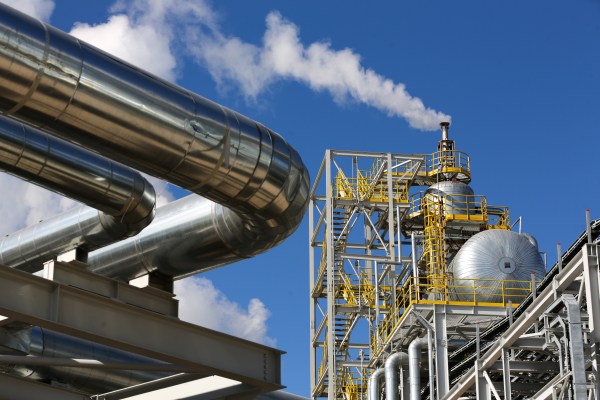When people talk about hydrogen these days, they almost always mention transportation. I get it: People are used to filling up tanks, not charging cars. But from a practical perspective, transportation is not a great use for hydrogen.
“Hydrogen is really terrible to store and to transport,” said Chad Mason, founder and CEO of Advanced Ionics.
Which is why Advanced Ionics is a hydrogen company that has nothing to do with transportation. Instead, the startup is focused on heavy industry, which represents about a third of global emissions.
“Hydrogen is one of the main feedstocks for a vast majority of industrial processes,” Mason told TechCrunch+. It’s essential for the ammonia used to make fertilizers and for many petrochemical processes used to make everything from plastics to synthetic rubber and lubricants. Even steel and glass production could benefit from a decarbonized source of hydrogen.
Amid the crowd of hydrogen companies hoping to elbow their way into these markets, Advanced Ionics hopes its more efficient approach to using electrolysis will give it an unfair advantage in producing hydrogen.
Today, much of the world’s hydrogen supply comes from what’s called steam-reformed methane. Basically, steam is mixed with methane gas, producing hydrogen and carbon dioxide. Electrolyzers, on the other hand, use electricity to split water into hydrogen and oxygen. If they’re powered by renewable energy, then the process can be carbon-free.
But they’re not perfect.
Most efforts to produce hydrogen work at either relatively low temperatures or high temperatures. Advanced Ionics’ electrolyzers, though, work at temperatures that are not too high or low, basically the same range at which many industrial processes already take place. That means the heat requirements for the startup’s equipment are the same as what’s already available at those sites.
“With electrolysis, you can’t get around thermodynamics,” Mason said. “So the best thing you can do is use water vapor steam, because at that point, you’ve already overcome the heat of vaporization of water.”
High-temperature electrolyzers follow that logic, and as a result, they don’t need as much electricity since the heat helps kick-start the chemical reaction. But existing designs require steam heated to 700°C–800°C, which takes lots of energy to generate. On the other hand, low-temperature electrolyzers are made of exotic elements and need massive amounts of electricity to run.
So instead, Advanced Ionics is targeting the midpoint between 200°C and 600°C, where a lot of industrial processes already operate. That eliminates the need for exotic materials and also reduces the energy needed to generate the steam and the amount of electricity required to drive the electrolyzer.
The startup recently announced a $12.5 million Series A led by BP Ventures, with Clean Energy Ventures, Mitsubishi Heavy Industries and GVP Climate also participating. The company was part of the 2022 TechCrunch Startup Battlefield 200 cohort and even went on to become a finalist.
With that funding, Mason said his company will continue working on its pilot projects, which include both equipment and manufacturing, and expand the team. Advanced Ionics is based in Milwaukee, which Mason has found to be a great fit for the company.
“I found a good community here,” he said. “I could throw a rock and hit any number of suppliers of parts and equipment and processes really quickly.” Plus, he adds, “there’s a lot of folks in the area that want to go on a different path in their career and want to work in a startup. So there’s just an amazing talent pool here to draw from in the trades and engineering and sciences.”
Advanced Ionics’ efforts so far show promise. The company’s electrolyzer can already produce 1 kg of hydrogen with 35 kWh of electricity, significantly undercutting today’s commercial electrolyzers, which require just over 50 kWh to do that. Taking the project from pilot to commercial scale will require some feats of engineering, but the company already appears to have a solid technical foundation and plenty of interest from the sorts of companies it hopes to court.
